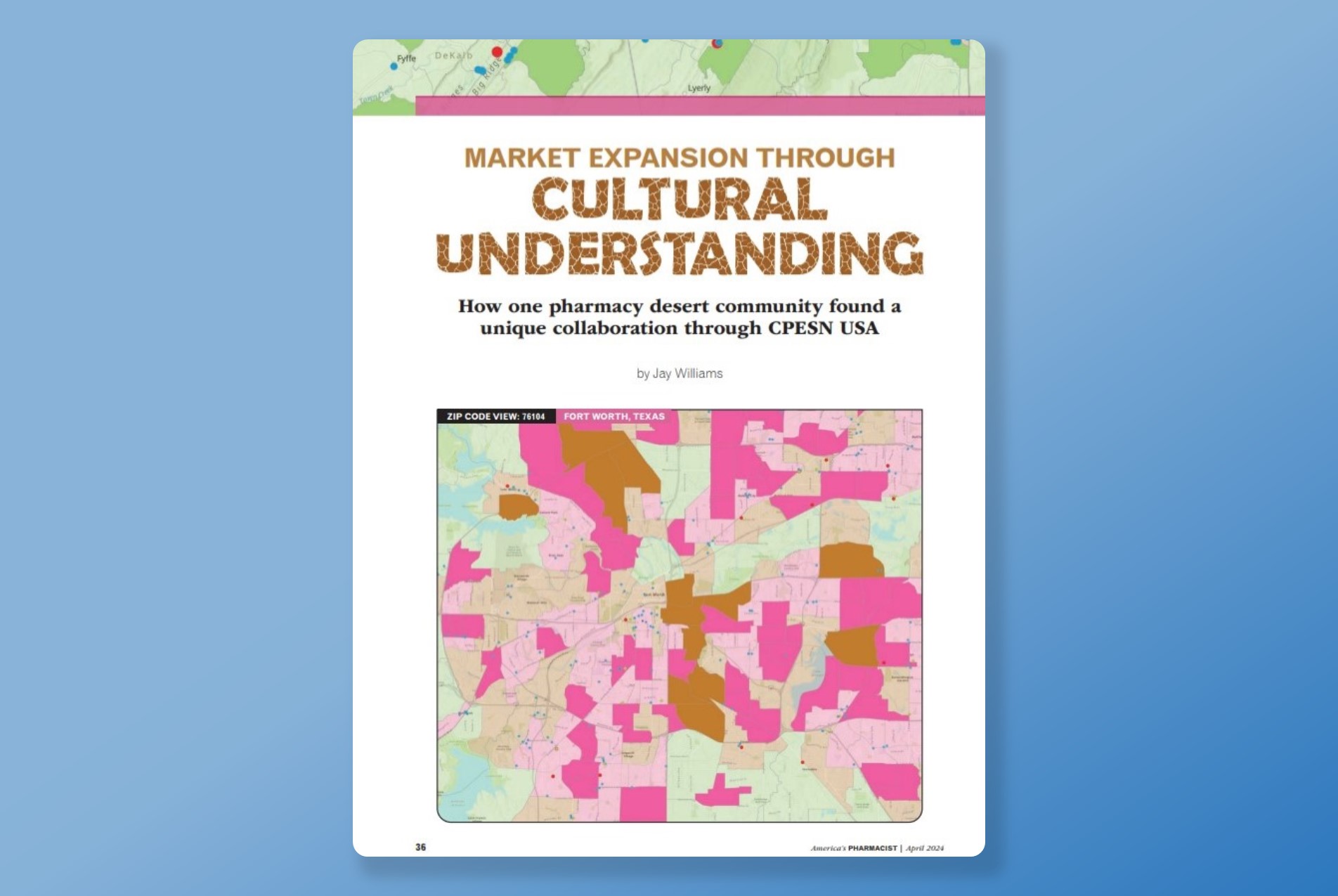When market pressures force independent community pharmacies to close their doors, patients lose access to healthcare and become stranded in pharmacy deserts. The distance to the nearest pharmacy becomes not just a matter of miles but a significant barrier to access and contributor to health disparities for patients without a vehicle or public transportation.
A staggering one in four neighborhoods across the nation grapple with pharmacy shortages, highlighting the urgent need for innovative solutions and patient-centric community leadership. In response to this pressing issue, CPESN® Texas Network Facilitator, Angelina Tucker, alongside Best Value Pharmacies in the Fort Worth area, embarked on a groundbreaking collaboration to bridge the gap between pharmacy deserts and access to vital services.
Featured in this month's issue of America's Pharmacist magazine, their story sheds light on the transformative power of community partnerships facilitated through CPESN USA's Community Care initiative. By harnessing local connections and cultural understanding, they pioneered a diabetes self-management education (DSME) program, focused on a mostly Black community in one of the city's most underserved areas.
This innovative collaboration brought together trusted community stakeholders, including a church, a mosque, a major state university, and, of course, the pharmacy itself. Angelina Tucker volunteered her time to lead weekly classes as part of a pilot program aimed at empowering patients with the tools and knowledge to manage their diabetes effectively.
The results have been remarkable, with patients experiencing tangible improvements in their health outcomes. Plans are already underway to expand the pilot program and replicate its success in other underserved areas.
CPESN’s Community Connected initiative is opening doors and connecting stakeholders to build understanding and to expand markets for pharmacy clinical services. This shining example underscores the value of the local pharmacy to ensure patient access not only to medications, but to diagnostic, preventive, and disease management care. Reimbursement for enhanced patient care and clinical services is the future of community-based pharmacy practice.
For more on Community Connected, visit www.communityconnected.us.
